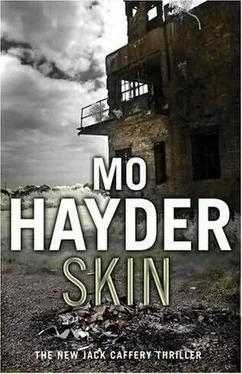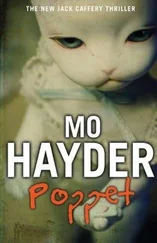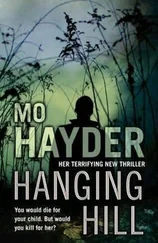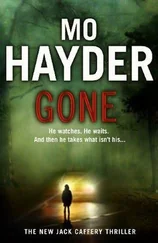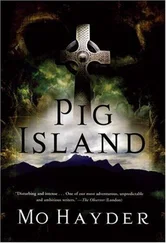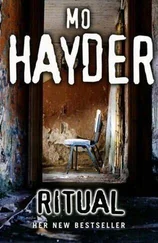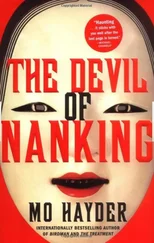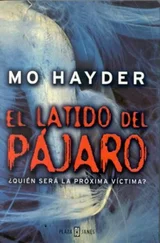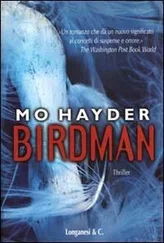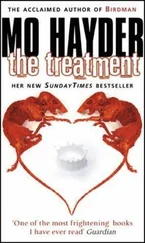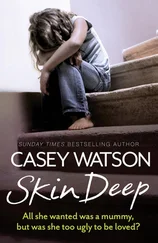‘Mrs Lindermilk’s son,’ the officer muttered. ‘Steve. I think the reality’s just hitting him now.’
‘You coping there, mate?’ Caffery stood in the doorway. ‘You all right?’
Steve Lindermilk’s face was very red. ‘Not really. I should’ve done something – I never saw it coming.’
‘You’ve been asked if you want to speak to a family liaison officer?’
‘Yeah, I have. Don’t need it.’
‘They’ve been assigned already. You can change your mind.’
‘No, thank you. But could you have someone speak to the neighbours? The ones gawking at us?’
‘Sure.’
Caffery glanced down the hallway at the yellow crime-scene tape slung across the entrance to the living room, then back at Lindermilk. ‘You know why I’m here?’
‘To ask me questions?’
‘And to look at the house. We need to find out if the break-in was connected to her death.’ Caffery’s head and leg were hurting like hell, in spite of the painkillers. ‘Do you understand?’
Lindermilk nodded.
‘Are you OK about that?’
‘I’m OK.’ He got up and followed Caffery along the tread plates. They stopped in the living-room doorway, leant over the tape and peered inside like visitors to a stately home. It looked to Caffery as if Ruth Lindermilk hadn’t been a good housekeeper to start with, but this was something else again: every cupboard, every shelf, had been emptied in a pile on the floor. An angry break-in? With those they usually took time out to shit on the floor. Or on the beds. This one looked more as if they had been searching for something. In the kitchen a window stood open, the locks prised off. It looked professional. A cat jumped on to the window ledge, paused when it saw the visitors and balanced for a moment, all four paws tight together, staring at them.
‘Look at that,’ Lindermilk grunted. ‘My mum encouraged that behaviour. Didn’t have much in the way of boundaries.’
‘When was the last time you were here?’
‘Couple of days ago.’
‘And the place didn’t look like this, I take it, the last time you were here?’
‘No, it bloody well did not,’ Lindermilk said. ‘Those pictures on the wall – the ones of the animals – that’s what was pissing people off round here. I’m surprised they never took those, if it was one of them did this.’
‘We’re looking at every possibility.’
Lindermilk shrugged. ‘Tell you what, when you’re done here can I have them photos? I’m going to burn them all.’
‘Speak to the CSI men. It shouldn’t be a problem.’
‘There’s some stuff on the outside I want to take too. Those things on the roof. I don’t want the neighbours coming through here and making a laughing-stock of us.’
Caffery turned to the staircase. Silver aluminium oxide dust clung to the banisters, crisscrossed with rectangular gaps where the fingerprints had been lifted by tape. ‘You didn’t see anyone hanging around last time? No cars you didn’t recognize?’
‘Never saw a thing.’
‘Would you know if something was missing? Anything of value she kept around? No cash on the premises? Jewellery? Credit cards?’
‘Only the computer. And the TV. And the telescope. She did have a bit of jewellery, though, rings and that.’
‘Where would she put them?’
‘In the safe.’
Caffery raised his eyebrows questioningly at the CSI man standing next to the front door. ‘Safe’s not damaged, sir.’ He lifted a finger and pointed to the next floor. ‘It’s in the bedroom. They’ve given it a whack, but haven’t got into it.’
The three men went upstairs, Caffery pulling himself up on the banister, not putting any weight on the damaged leg. Another CSI guy, in blue forensic overalls, crouched at a chest on the landing, eye level with its handle, brushing it with black powder. As they came past he gave a long sigh.
‘Only getting one set of fingerprints at the moment. And they’re hers. I’m thinking the guy wore gloves.’
Lindermilk took them into a bedroom, a small, low-ceilinged, room with an under-eaves window and exposed beams. There was a bed with a quilted headboard in the corner and above it a wall safe, a small one, just big enough for paperwork and jewellery. It was covered with fingerprint dust. Lindermilk went to the safe. He was about to turn the dial, when Caffery coughed.
‘Just a moment.’ He limped back into the hall and bent to fish a pair of gloves out of the CSI’s kit. He tossed them to Lindermilk, who caught them and pulled them on.
‘Know the combination, then?’
Lindermilk peered at the lock. ‘Used to. Unless she’s changed it.’ He twirled the knob experimentally, muttering the numbers under his breath. The lock clicked, turned, and he opened the door, standing back, hand up to indicate what was inside.
Caffery stepped forward. The safe was full. He could see two plastic envelopes of paperwork with pale blue backing, and a small black enamel box.
‘The jewellery.’ Lindermilk pulled it out. He opened the box and looked inside, poking through the contents with a fingertip.
‘Anything missing?’
‘Don’t think so.’ He held it out to Caffery.
Nothing remarkable was in there: a solitaire diamond on a chain, a pair of cufflinks, a few rings and a diamanté brooch in the shape of an anchor.
Lindermilk put the box down and turned back to the safe. He took out the top envelope, tipped the contents into the palm of his hand and looked through them. ‘Legal stuff. Her will, house deeds, stuff from her solicitors.’
He unpicked the rubber band of the second folder. It contained photographs, all the same size, A4, but from the different print quality and paper they must have been taken over a span of thirty years or more.
‘What’re they?
‘Photographs of animals. God knows why she kept them, the silly cow. She used to like taking photos of dolphins and stuff. I’ll burn these too.’
‘Let me see.’
Lindermilk fanned them. Some were in colour. A few showed a wedding, probably in the late seventies: a couple smiling outside a churchyard, the bride, a fair-skinned blonde in a long blue-and-white flower-sprigged dress and straw hat. Others showed dead animals: badgers splayed across roads, their hindquarters and heads smeared into the road markings, dead rabbits, dead squirrels. A deer with its neck broken so its head was turned back to face its hindquarters. ‘Just about every piece of roadkill in the country.’ Lindermilk sounded weary. ‘She wanted to get up a campaign to have speed controls on the road down there. That’s what had the neighbours so pissed off.’
But Caffery had stopped listening. Out in the garden, where the trees made sharp black cut-outs against the night sky, something had moved. He went to the window and peered out, careful not to touch the glass even when his breath steamed it. He’d caught the movement out of just the corner of his eye. It hadn’t been the reflection of one of them in the room but something else. Something was in the garden.
He stood for a moment, thinking how dark it was out there, thinking of the miles and miles of countryside that anything could crawl through, thinking of the road that led down to the clinic, of the place he and the Walking Man had sat, watching shapes move in the trees. He thought of that tinny little scooter phut-phutting on the country lane. And then he thought of what he, Caffery, might look like from outside, standing at the window, his serious face lit from the back and the side.
‘Sir,’ Lindermilk said, ‘can I ask you a question?’
He turned, distracted. ‘What?’
Lindermilk was holding out the photos. ‘I’ll take these too, then? Along with the ones on the walls downstairs?’
Читать дальше
